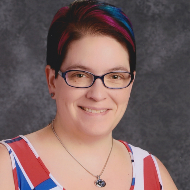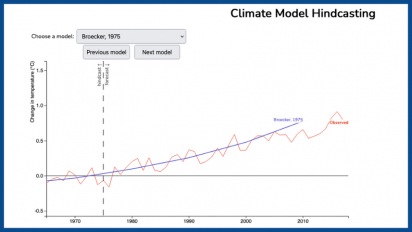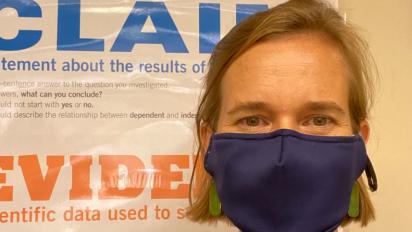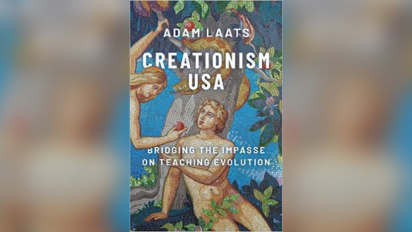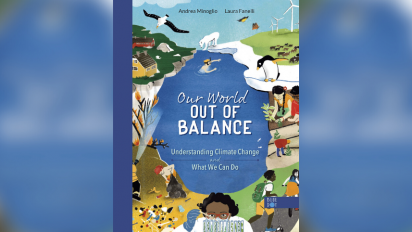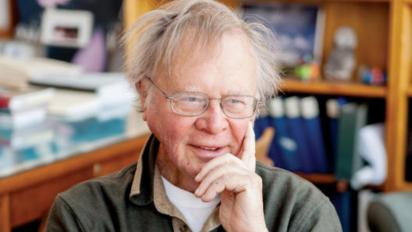Meet Katherine Jenkins — An NCSE Curriculum Study Field Tester
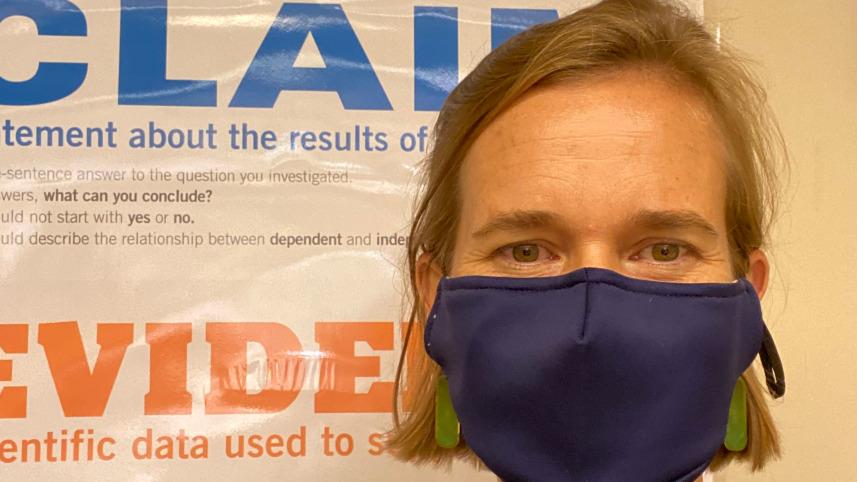
Thirty middle and high school teachers in diverse communities around the country have begun the task of testing, assessing, and reporting on NCSE’s climate change, evolution, and nature of science lessons as part of a curriculum study field test during the current and next school years. (For more on the curriculum study field test, see "NCSE launches curriculum study to investigate efficacy of lessons") During July 2021, NCSE staff conducted a two-week virtual professional development session to prepare these educators to teach the NCSE lessons. I recently spoke with one of those teachers, Katherine Jenkins, who teaches at an independent Quaker school in Baltimore, about her experience with the session. The interview has been edited for clarity and brevity.
LIN ANDREWS: So why did you decide to sign up to be a curriculum study field tester?
KATHERINE JENKINS: Simple — the state of the nation. I’ve been apprehensive about how divided our country seems to be about all things science lately. The pandemic only added to a sense of isolation and division, and I was excited about the idea of working with a national cohort of teachers to help bridge these divides. Scientific knowledge and research are being questioned constantly by a segment of the media. I was helping my students break down the rampant science misconceptions spreading during these trying times. It is much easier to make changes and improve curriculum in a cohort than all on your own, so it is a win-win for teachers.
LA: We recently finished our two-week online professional learning summer session, where NCSE staff explained best practices on approaching the nature of science, evolution, and climate change in the classroom. Compared to other professional learning you have taken part in, how do you feel NCSE’s approach was different?
KJ: First, we were given a huge palette of lesson plans to pick from when implementing the misconception-based curriculum in our classrooms. There were so many activities to choose from, it almost felt overwhelming at first. But my favorite part of that is that it gave me more freedom to implement the lessons in a tailor-made fashion for my course. I will teach them in a tenth-grade class called Life and Physical Science, designed to help students better understand scientific concepts and attain scientific literacy. These lessons were a perfect match for a course of this nature.
Second, NCSE staff and teacher ambassadors provided multiple strategies for tackling each misconception by creating several entry points into the concepts whenever possible. During the two weeks, you also allowed teachers to participate in ongoing conversations, guide the direction of the discussion, and even change the schedule daily based on our feedback. It was a very positive experience.
What I look forward to most is providing my students more and different opportunities to work with and collect authentic data.
LA: Have you ever taught a nature of science unit before?
KJ: In the past, I’ve only ever spent a day or two on the scientific process. I would incorporate other aspects of the nature of science throughout my entire year, but having a complete unit at the beginning of my course will be entirely new for me. I’m dividing the Nature of Science unit into two pieces in my classroom because I plan to have an entire section dedicated to the COVID-19 pandemic. [NCSE’s nature of science unit uses the current pandemic and the science behind the SARS-CoV-2 virus as a central example throughout.] I’m allowed a little more freedom to do this since I teach in an independent school.
LA: How do you see your part in this study playing out over the next two years? How will you make this work in your classroom?
KJ: One of the things I love about teaching is how it always involves trying new things. What I look forward to most is providing my students more and different opportunities to work with and collect authentic data. I love giving my students puzzles and watching them figure out how all the pieces work together. I feel confident students will figure out how science works. This method, in turn, will help inoculate them against new misinformation when they encounter it in the future.
LA: A distinctive feature of the new soon-to-be-unveiled evolution curriculum is a focus on human origins. Have you ever approached this topic in the classroom before? What are you most excited about with this opportunity?
KJ: I’ve told the story of Piltdown Man in my environmental science class when discussing the possibility of bias affecting the conduct of science. My students and I have also included humans in discussions of biodiversity, as well as how our species is much less genetically diverse than other species. I’m very excited to use 3-D skulls and structures to help my students see the differences between different hominids and assist students in seeing that there is a treasure trove of evidence supporting human evolution. I only wish I could place physical skull models in all my students’ hands! But I am grateful for the opportunity to incorporate even computer-rendered images into my course. I think it will significantly reduce misconceptions that surround human origins and defuse the controversy surrounding the subject.
Katherine Jenkins’s enthusiasm for NCSE’s lesson plans is representative of the many teachers serving as curriculum study field testers. We at NCSE are very excited about this initiative and will continue to report how the curriculum study is progressing. Stay tuned for more!
This version might differ slightly from the print publication.

